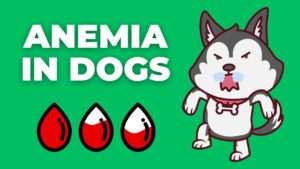Ever pondered if your furry friend could indulge in some seafood delight? Shrimp, a delicacy for many humans, may entice you to share with your pup. But hold on! Before tossing them a treat, it’s crucial to understand whether shrimp is safe for dogs. Let’s dive into the depths of canine nutrition to uncover the truth.
Contents Overview
What is Shrimp
Shrimp are small, aquatic crustaceans that belong to the Decapoda order. They have slender bodies, multiple pairs of legs, and a distinctive curved shape. Shrimp are a popular seafood worldwide, prized for their delicate flavor and versatility in cooking. They inhabit both saltwater and freshwater environments and are known for their rapid swimming capabilities. Shrimp serve as an important source of protein and nutrients in many cuisines, making them a valuable food resource for humans.
Nutritional Value of Shrimp
Shrimp are packed with essential nutrients beneficial for human health. They are low in calories and fat but high in protein, making them a nutritious choice for those seeking to maintain a balanced diet. Additionally, shrimp are rich in vitamins and minerals such as vitamin B12, phosphorus, and selenium, which support various bodily functions including nerve health, bone strength, and immune system function. With their impressive nutritional profile, shrimp provide a tasty and wholesome addition to meals for individuals looking to boost their protein intake and overall nutrient consumption.
Can Dogs Eat Shrimp Safely?
While dogs can safely eat shrimp in moderation, there are important considerations to keep in mind. Plain, cooked shrimp without any seasonings, garlic, or onions can be a safe treat for dogs, as it provides high-quality protein and essential nutrients. However, some dogs may have allergies to shellfish, including shrimp, which can lead to adverse reactions such as itching, vomiting, or diarrhea. Additionally, shrimp shells pose a choking hazard and may cause gastrointestinal blockages if ingested. Therefore, it’s essential to monitor your dog for any signs of allergies and to remove shells before offering shrimp as a treat. Consulting with your veterinarian before introducing shrimp or any new food into your dog’s diet is always recommended to ensure their safety and well-being.
Potential Benefits of Shrimp to Dogs
Shrimp, a delicacy for humans, might also catch the curiosity of pet owners pondering if it’s suitable for their furry companions. Dogs, known for their varied appetites, might exhibit interest in this seafood delight. But, can they benefit from it? Let’s dive deeper into the potential advantages of feeding shrimp to dogs.
Rich Source of Protein:
- Shrimp serves as a protein-packed treat for dogs, aiding in muscle development and repair.
- Protein is vital for various bodily functions, including enzyme production, tissue maintenance, and immune system support.
Omega-3 Fatty Acids:
- Shrimp contains omega-3 fatty acids, which contribute to a healthy coat and skin for dogs.
- These fatty acids also support joint health and may alleviate inflammation, benefiting dogs with conditions like arthritis.
Nutrient Diversity:
- Shrimp provides an array of nutrients like vitamin B12, phosphorus, and selenium, which are essential for canine health.
- Vitamin B12 supports energy metabolism, while phosphorus aids in bone health and selenium acts as an antioxidant.
Palatability:
- Dogs often find the taste of shrimp appealing, making it a flavorful addition to their diet.
- The palatability of shrimp can entice picky eaters or dogs with decreased appetite to consume their meals enthusiastically.
Low Calorie Option:
- Shrimp can be a low-calorie snack for dogs, suitable for those on a weight management regimen.
- Offering shrimp as a treat allows dogs to indulge in a tasty snack without consuming excessive calories.
Potential Risks and Precautions of Feeding Shrimp to Dogs
While shrimp can offer potential benefits to dogs, it’s crucial to be aware of the associated risks and take necessary precautions to ensure your furry friend’s well-being. Let’s explore the potential hazards and precautions when feeding shrimp to dogs.
Choking Hazard:
- Shrimp, especially if not properly prepared, may contain small bones or shell fragments that pose a choking risk to dogs.
- To mitigate this risk, ensure shrimp is thoroughly cleaned, cooked, and deboned before offering it to your dog.
Allergic Reactions:
- Dogs, like humans, can develop allergies to certain foods, including shrimp.
- Symptoms of an allergic reaction in dogs may include itching, swelling, hives, vomiting, or diarrhea.
- If your dog has never consumed shrimp before, introduce it in small amounts and monitor for any adverse reactions.
Shellfish Toxicity:
- Shrimp, along with other shellfish, can contain harmful toxins, such as biotoxins or heavy metals, which may adversely affect dogs.
- To minimize the risk of shellfish toxicity, ensure shrimp is sourced from reputable sources and avoid feeding your dog raw or undercooked shrimp.
High Cholesterol Content:
- Shrimp contains cholesterol, which, when consumed in excess, can contribute to health issues like obesity or heart disease in dogs.
- Limit the amount of shrimp given to your dog, especially if they have pre-existing health conditions like obesity or cardiovascular issues.
Gastrointestinal Upset:
- Introducing new foods, including shrimp, to a dog’s diet abruptly can lead to gastrointestinal upset, resulting in symptoms like diarrhea, vomiting, or abdominal discomfort.
- Gradually introduce shrimp into your dog’s diet, starting with small portions to allow their digestive system to adjust.
Safe Ways to Feed Shrimp to Dogs
Sharing shrimp with your canine companion can be a delightful experience, provided it’s done safely and responsibly. Knowing the safe ways to feed shrimp to dogs ensures that they can enjoy this treat without any adverse effects. Let’s explore some safe methods for feeding shrimp to your furry friend.
Cooking Method:
- Always cook shrimp thoroughly before offering it to your dog to eliminate any harmful bacteria or parasites.
- Boiling, steaming, or grilling shrimp without seasoning are safe cooking methods that retain nutrients while making the shrimp safe for consumption.
Deboning and Cleaning:
- Remove the shells, tails, and any visible veins from the shrimp before feeding it to your dog to prevent choking hazards and ensure easy digestion.
- Thoroughly clean the shrimp to remove any remaining shell fragments or contaminants that may pose a risk to your dog’s health.
Portion Control:
- Offer shrimp to your dog in moderation, as part of a balanced diet, to prevent overconsumption of cholesterol and avoid potential gastrointestinal upset.
- For small or toy breeds, consider cutting shrimp into smaller pieces to make it easier for them to chew and digest.
Introducing Gradually:
- If your dog has never eaten shrimp before, introduce it gradually into their diet to monitor for any adverse reactions or allergies.
- Start with a small amount of cooked shrimp and observe your dog for signs of itching, swelling, vomiting, or diarrhea before increasing the portion size.
Sourcing Quality Shrimp:
- Choose high-quality shrimp sourced from reputable suppliers to ensure it’s free from contaminants, toxins, or additives that may harm your dog.
- Opt for fresh or frozen shrimp without added seasonings, preservatives, or sauces, which can be detrimental to your dog’s health.
Supervision:
- Always supervise your dog while they’re enjoying shrimp to prevent choking or other accidents.
- Monitor their behavior and health after consuming shrimp to ensure they tolerate it well and don’t experience any adverse effects.
When to Avoid Shrimp to Dog
- If your dog has a known allergy to seafood or shellfish.
- During periods of gastrointestinal upset or sensitivity.
- If the shrimp is raw or undercooked, as it may contain harmful bacteria or parasites.
- If the shrimp is seasoned, flavored, or contains additives that are not safe for dogs.
- If your dog has a history of pancreatitis or other digestive issues triggered by high-fat foods.
- If your veterinarian advises against it due to your dog’s specific health condition or dietary restrictions.
Safe and Suitable Alternatives of Shrimp for Dogs
If you’re looking for safe and suitable alternatives to shrimp for your dog, consider options such as cooked fish (like salmon or whitefish), lean poultry (such as chicken or turkey), and cooked eggs. These alternatives offer similar nutritional benefits, including protein and omega-3 fatty acids, without the potential risks associated with shellfish. Additionally, vegetables like sweet potatoes, carrots, and green beans can provide a crunchy and nutritious snack for your furry friend. Always ensure that any food offered to your dog is cooked, deboned, and free from seasonings or additives that may be harmful to their health.
Bottom Line
In the realm of canine nutrition, the question of whether dogs can eat shrimp isn’t a straightforward yes or no. While shrimp offers certain nutritional benefits, it also carries risks, particularly for dogs with allergies or those prone to digestive issues. As responsible pet owners, it’s our duty to prioritize our furry friend’s health and well-being. So, the next time you’re tempted to share your seafood snack, remember to tread cautiously and prioritize moderation and safety above all else.

































+ There are no comments
Add yours